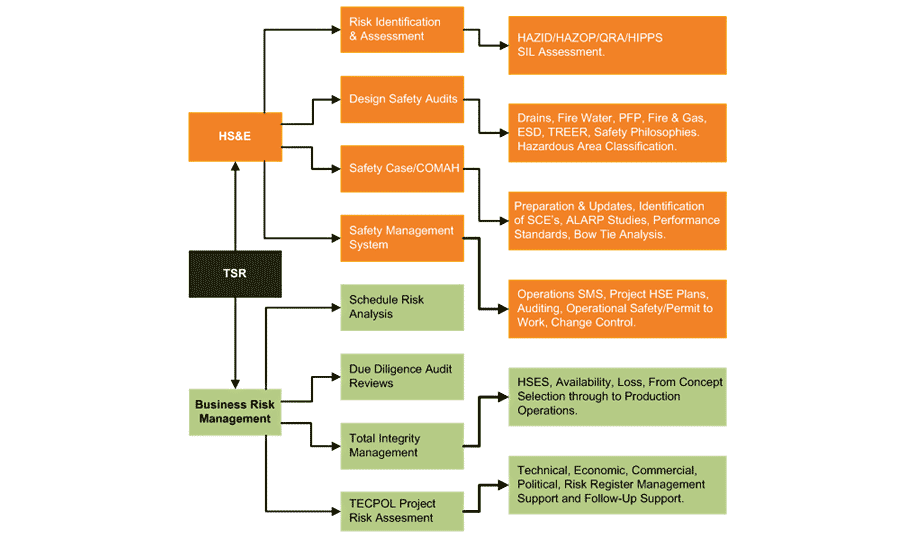TSR (Technical, Safety, Risk & Reliability)
Managing technical safety, risk and reliability
The effective management of technical safety, risk and reliability (TSR) is one of the first priorities in any oil and gas development project. Production facilities are usually quite complex, and often located in unique environments that are almost always hostile, with plenty of potential for safety breaches, negative environmental impact or loss-making downtime.
The ability to predict and then prevent or mitigate undesirable events is probably the single-most important factor in achieving business success - both in the oil & gas industry and in the energy sector as a whole. The SBS Technical Safety, Risk & Reliability Division works hand-in-hand with other SBS divisions to ensure that effective risk management is a key feature of every SBS project, throughout the lifecycle of the asset. From initial concept through to full-scale production, through decommissioning, we cover every activity associated with safety, risk and equipment reliability, from the preparation of individual studies through to the provision of dedicated, full-time support. As our approach is multidisciplinary, and because we take an unbiased, independent view of our Client’s needs, we (always) challenge conventional thinking. We encourage our Clients to let us share ownership of the issues to be resolved and approach project design from fresh perspectives. This helps to ensure pivotal decisions are based on a clear understanding of the integrity issues involved.

Services
- Risk management systems, including HS & E management and planning, operational safety, staff resourcing, permits and consents.
- Risk-register services, including HAZOP/HAZID analyses, HIPPS studies and SIL/LOPA assessments.
- Safety Case Services – from case preparation, critical element identification and performance-standard development through to COMAH reports.
- Formal Safety Assessments, from quantitative risk analysis through to ALARP studies.
- Safety Engineering Services, including safety reviews, fire and gas systems, ESD systems and hazardous area classification as well as EPRS procedure development and recommendations for minimum emergency pipeline repair system spares holding.
- Reliability Engineering, from failure investigation and root-cause analysis, FMECA, RAM studies and technical integrity audits through to trend analysis, risk-based inspection, maintenance and spares management.
What governments said
The challenge to improve safety will be ever greater as more offshore installations exceed their original design life.
– Steve Walker
Head of the UK Health and Safety Executive’s Offshore Division
